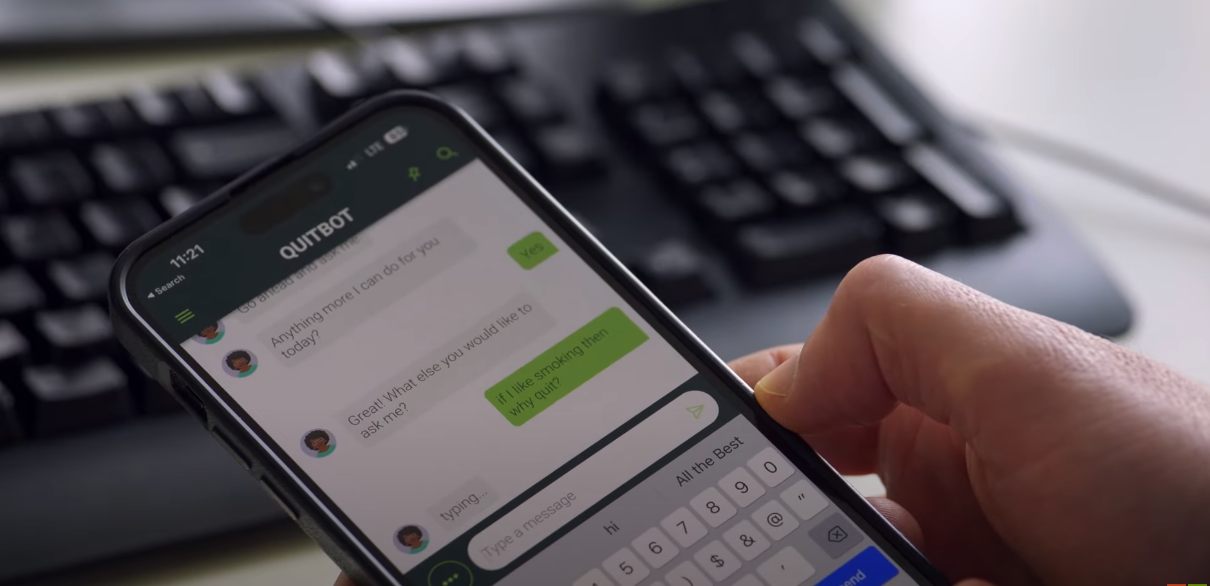
What you need to know
- QuitBot is an AI-powered habit change platform based on OpenAI's ChatGPT technology that is designed to help smokers overcome their Nicotine addiction through emotional support.
- The software is in place to make up for the insufficient number of healthcare personnel in medical facilities with the skill set to help substance abuse problems through their addiction to the recovery phase.
- The AI bot has a series of 32 different conversations about quitting smoking, which it uses as the premise to help smokers through their journey to recovery by providing tools to help them deal with their triggers and more.
Generative AI continues to scale greater heights across various categories, including education, medicine, and more. Speaking of medicine, Microsoft's Chief Questions Officer, Trevor Noah recently featured Dr. Jonathan Bricker from the Fred Hutchison Cancer Center in Seattle, Washington on The Prompt with Trevor Noah show to talk about QuitBot — an AI-powered "habit change" platform based on ChatGPT technology designed to help smokers get over Nicotine addiction through emotional support.
Dr. Bricker happens to be the lead investigator for the platform, and his work majorly revolves around the prevention of cancer. The interview kicked off with Dr. Bricker highlighting that over 8 million people die every year from tobacco use, further citing that Nicotine is far more addictive when compared to hard drugs like Heroin and Cocaine. The doctor further attributed this to the lack of sufficient personnel and healthcare providers in place to help smokers through the addiction phase as they try to turn over a new leaf.
How does QuitBot work?
According to the doctor, QuitBot will provide recovering smokers with "the kind of connection, and relationship, and advice, and help that they would get from a clinician." What's more, it's readily available for use since you can install it on your phone and use it while on the go.
While the decision to quit substance abuse oftentimes boils down to the user's willpower and determination, emotional support and expert coaching play a crucial role, too. QuitBot could potentially help smokers through this difficult time, as it's based on a series of 32 different conversations about quitting smoking.
When first interacting with the AI chatbot, it will try to establish why you want to quit smoke, when you have cravings as well as your current state of mind. The program also tries to figure out situations that would trigger you and eventually lure you back to smoking.
It's from this insightful information that the chatbot learns more about your decision to quit smoking. As such, it will often reach out to you and give you subtle reminders of why you decided to quit smoking in the first place, ultimately acting as a great motivator to continue with the journey to recovery.
Interestingly, the chatbot will also present users with ideal tools that will help them deal with triggers that may potentially lead them to fall off the wagon and get back into smoking.
Cessation help for all forms of substance abuse 24/7

Dr. Bricker disclosed to Trevor Noah that Quit Bot could be adapted to help users with other forms of addiction, and even help them through the maintenance phase once they've achieved their goals and overcome the addiction. This is based on the premise that most forms of addiction potentially share the same triggers.
Of course, there's still a lot of training that needs to be done to get the chatbot to this point, but it's already quite impressive how far QuitBot has come. With OpenAI's GPT Store now being business and open to the public, we're likely going to see more iterations of QuitBot-like iterations emerge in the future.
What are your thoughts on users with substance abuse problems leveraging AI-powered chatbots to navigate themselves to recovery? Let us know in the comments.







